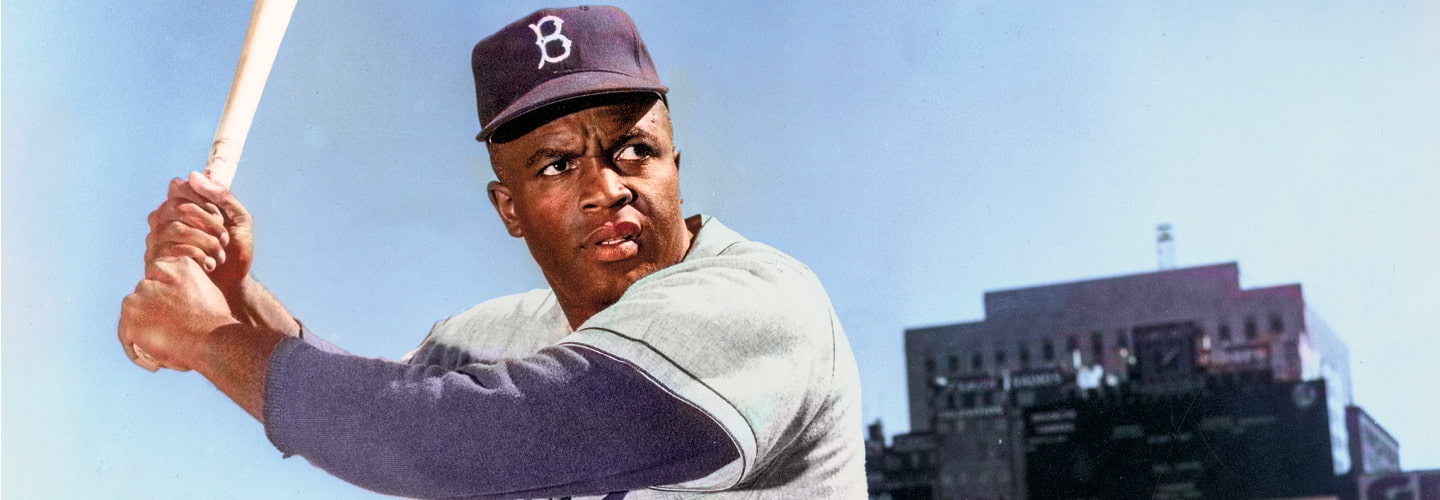Alton Waldon Jr. couldn’t believe his eyes. It was 1947, and Waldon, then 11 years old, was outside his school in Brooklyn, New York, playing stickball with his friends, when up walked their hero: Jackie Robinson. It was one of many times that the first baseman for the Brooklyn Dodgers would stop and chat with the boys and share batting tips.
Robinson wasn’t just any ordinary ballplayer. He’d shattered professional baseball’s color line when he took the field for the Brooklyn Dodgers on April 15, 1947—becoming the first Black player in Major League Baseball in the modern era.
Growing up as a Black boy in Brooklyn, Waldon listened to games on the radio and cheered Robinson from the stands. He still remembers it as one of the most inspiring times of his life.
“It changed how you felt about yourself,” recalls Waldon, who grew up to become a U.S. congressman from New York. “We had more glide in our stride and dip in our hips.”
Today, 75 years later, Robinson’s debut with the Dodgers is considered one of the most important moments in civil rights history. At a time when segregation was deeply embedded in the United States, he became a beacon of hope that the color lines existing throughout American society—from neighborhoods and schools to the military—could also be broken. Paving the way on the ballfield, however, wouldn’t be easy. Robinson would have to overcome challenges unlike any athlete had faced before.
Alton Waldon Jr. couldn’t believe his eyes. It was 1947. At the time, Waldon was only 11 years old. He was outside his school in Brooklyn, New York, playing stickball with his friends. Then out of nowhere came their hero: Jackie Robinson. It was one of many times that the first baseman for the Brooklyn Dodgers would stop and chat with the boys. During the visits, he shared batting tips with them.
Robinson wasn’t just any ordinary ballplayer. He’d crossed professional baseball’s color line when he took the field for the Brooklyn Dodgers on April 15, 1947. On that day, he become the first Black player in Major League Baseball in the modern era.
Growing up as a Black boy in Brooklyn, Waldon often listened to games on the radio. When he attended in person, he cheered Robinson from the stands. He still remembers it as one of the most inspiring times of his life.
“It changed how you felt about yourself,” recalls Waldon, who grew up to become a U.S. congressman from New York. “We had more glide in our stride and dip in our hips.”
It's been 75 years. Robinson’s debut with the Dodgers is still viewed as one of the most important moments in civil rights history. Segregation at the time was deeply rooted in the United States. From neighborhoods and schools to the military, color lines existed throughout American society. Robinson became a beacon of hope, and his rise suggested that all of the color lines could also be broken. But paving the way on the ballfield wouldn’t be easy. Robinson would have to overcome challenges no athlete had faced before.

